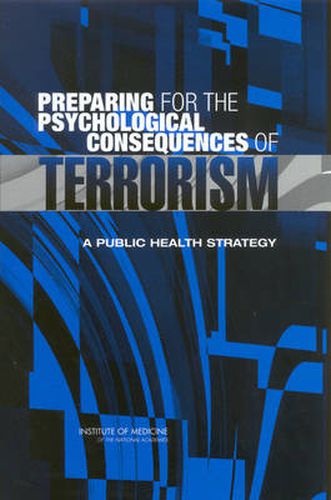Readings Newsletter
Become a Readings Member to make your shopping experience even easier.
Sign in or sign up for free!
You’re not far away from qualifying for FREE standard shipping within Australia
You’ve qualified for FREE standard shipping within Australia
The cart is loading…






The Oklahoma City bombing, intentional crashing of airliners on September 11, 2001, and anthrax attacks in the fall of 2001 have made Americans acutely aware of the impacts of terrorism. These events and continued threats of terrorism have raised questions about the impact on the psychological health of the nation and how well the public health infrastructure is able to meet the psychological needs that will likely result. Preparing for the Psychological Consequences of Terrorism highlights some of the critical issues in responding to the psychological needs that result from terrorism and provides possible options for intervention. The committee offers an example for a public health strategy that may serve as a base from which plans to prevent and respond to the psychological consequences of a variety of terrorism events can be formulated. The report includes recommendations for the training and education of service providers, ensuring appropriate guidelines for the protection of service providers, and developing public health surveillance for pre-event, event, and post-event factors related to psychological consequences.
$9.00 standard shipping within Australia
FREE standard shipping within Australia for orders over $100.00
Express & International shipping calculated at checkout
The Oklahoma City bombing, intentional crashing of airliners on September 11, 2001, and anthrax attacks in the fall of 2001 have made Americans acutely aware of the impacts of terrorism. These events and continued threats of terrorism have raised questions about the impact on the psychological health of the nation and how well the public health infrastructure is able to meet the psychological needs that will likely result. Preparing for the Psychological Consequences of Terrorism highlights some of the critical issues in responding to the psychological needs that result from terrorism and provides possible options for intervention. The committee offers an example for a public health strategy that may serve as a base from which plans to prevent and respond to the psychological consequences of a variety of terrorism events can be formulated. The report includes recommendations for the training and education of service providers, ensuring appropriate guidelines for the protection of service providers, and developing public health surveillance for pre-event, event, and post-event factors related to psychological consequences.